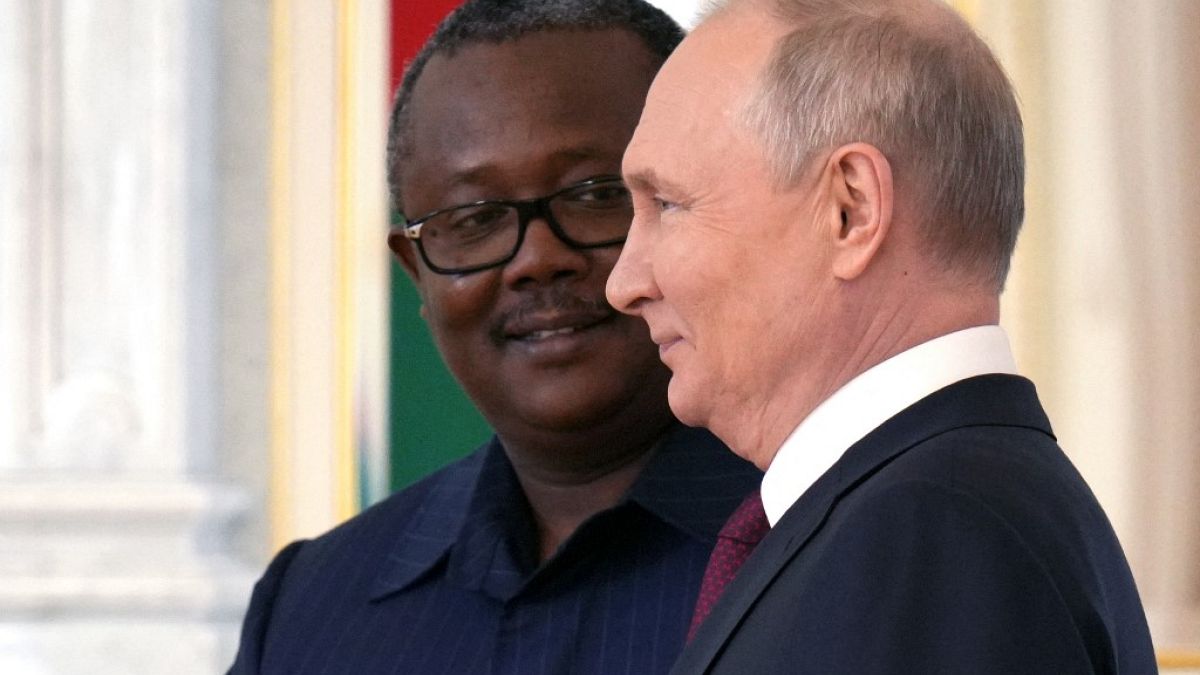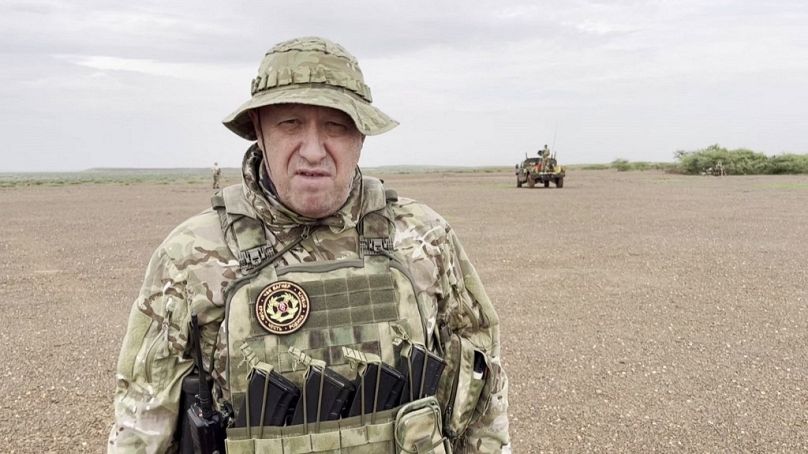Wagner mercenaries have been involved on the African continent for years. So has Prigozhin's demise jeopardised Russia's plans for the African continent?
The many lives of Yevgeny Prigozhin, the controversial leader of the Wagner Group, came to an abrupt end in a plane crash near Moscow on 23 August.
Less than a month earlier, Vladimir Putin had said in St Petersburg, at the Russia-Africa summit, that it was urgent to fight against the neo-colonialism of Western countries.
Wagner guns for hire have been involved in shady business on the African continent for years. So has Prigozhin's demise jeopardised Russia's plans for the African continent?
"Prigozhin was a CEO, which means that the organisation functions independently of him, as does the entire infrastructure around the organisation, for which Africa is essential in terms of financing, money laundering and so on," explained Yan St-Pierre, an expert at the independent geoeconomic think tank Eastern Circles.
"All that infrastructure is still in place," he added.
Pauline Bax, from the International Crisis Group, points out that "Russian military officials, from the deputy defence minister to intelligence officers, have come to visit some of these countries. In the Central African Republic, Mali, there were contacts with the leaders of Burkina Faso, and it was made clear that the Russian Ministry of Defence was going to take control of the Wagner group."
Less than 1% of foreign investment in Africa comes from Russia
Before being diplomatically isolated following his decision to invade Ukraine in February 2022, Putin's Russia was making ambitious promises to Africa.
At the first summit with African leaders in Sochi in 2019, the Russian president guaranteed that he would be able to double the volume of trade between the two blocs in five years. Not only did it not happen, it actually decreased.
In fact, Russia is not channelling much capital to Africa. In total, it accounts for less than 1% of foreign direct investment on the continent.
Trade stands at around €16 billion, which is around 5% of what the European bloc invests. More than two-thirds of exports (mainly cereals) are centred on just four countries: Morocco, Algeria, Egypt and South Africa.
But when it comes to arms sales, it's a different story. By 2022, Moscow would have overtaken Beijing as the main arms supplier to Africa, accounting for almost 40 per cent of the total. The equipment is more affordable than Western equivalents and is compatible with material that has survived from the Soviet era.
This summer, in the space of just one month, there were two coups d'état - in Niger (26 July) and Gabon (30 August). Right next door, the examples are repeated: Mali, Guinea, Burkina Faso, Sudan, and Chad; almost all of them on the sub-Saharan transition line.
Moscow: the realistic alternative to the West
At a time when power transitions are taking place with weapons, the question arises: are Russia's targets purely geopolitical?
"Much of what Russia and the Wagner group have done in the last two years, to put it bluntly, has been to show the middle finger to France. France has been the main target. They've targeted former French colonies in Africa. And it's worked surprisingly well. However, Russia doesn't make investments, it doesn't help development, it doesn't provide humanitarian assistance," says Pauline Bax.
For Yan St-Pierre, "the fact that they support the dynamics of young people, saying 'we support what you do and we won't judge you if there are human rights abuses', stands out". This is well received. What Russia does well is provide an alternative to what Western countries offer or have offered in recent decades."
By taking influence away from the West, Moscow is gaining support that is in short supply on the international scene. African countries have 54 votes in the UN General Assembly, making them one of the strongest regional blocs.

